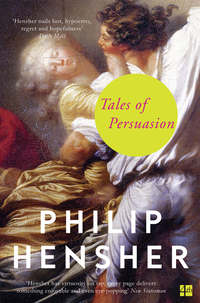
Полная версия
King of the Badgers
In the possession of the police was another list of names. Unlike the list of China’s friends and acquaintances, gathered by talking to her mother, to Micky, to her aunt and her siblings and her other friends, this was kept securely on a computer, and not printed out lightly, not shown to anyone outside the police service. On it were the names of those in Devon and Cornwall who had been convicted or accused of some sexual crime against children. Some of them had fucked eight-year-old nieces thirty years ago, and had recently been released from decades of drinking prison tea, pissed in by generations of kitchen-serving muggers. Others had been found with images of carefree naked toddlers on their computers, each one fairly unobjectionable, but amounting to a collection of tens of thousands. One unfortunate had, in 1987, had sex with a bricklayer who turned out to be twenty years old and thus below the age of consent; he, too, found himself on the police’s list of slavering lunatics beside the others with horrible designs on toddlers. There seemed no means of removing him from the police list, and he, like all the others, received a visit from the police in the little pink-fronted terraced house in Drewsteignton with a rainbow sticker in the window where he lived with the same bricklayer, now in his forties.
‘Someone’s taken her, I know it,’ Heidi was saying. ‘They’ve taken her, they’ve definitely taken her.’
Her apricot sitting room was crowded now: five police officers, Micky, Ruth, and a man from the local press as well as Heidi. The police didn’t know how he had got there and who had asked him, but he was taking notes silently, as if in competition with the woman police officer on the arm of the sofa doing the same thing. And there was someone else no one knew what he had to do with anything; a man called Calvin, well-dressed and elegant. One of the officers knew him, apparently, and had said, ‘Hello, Mr Calvin,’ when he had come in, so nobody had challenged him. Heidi wanted him to be there, it seemed; she turned to him from time to time instead of answering a question. He was an improbable friend for Micky or Heidi, but he nodded and smiled, or shook his head and frowned when appealed to. He had some role, possibly self-assigned. Outside on the stairs, the children sat, Ruth’s mother guarding them in watchful silence.
‘She hasn’t fallen into the estuary,’ Ruth said. ‘I said she hasn’t. We knew she hadn’t gone playing hide and seek, or gone off to visit one of her friends without telling anyone. We told you that yesterday. I told you she’d been taken by someone.’
‘We have to explore every possibility,’ one of the police officers said. ‘We’re dedicating a very large number of officers to this case. This morning, they have started paying home visits to every individual in the area known to us with some sort of record. You needn’t have any concerns about that.’
‘Oh, my God,’ Ruth’s mother said, coming into the room. ‘You’re telling us that there are people who have done this, living here, living round here sort of thing?’
‘Those are our first port of call,’ the police officer said.
‘Living here, on the estate?’ Micky said. ‘Who are they?’
‘Not necessarily here on the estate.’
‘Are they supposed to be living in Hanmouth?’ Ruth said. ‘Or Old Hanmouth?’
‘I’m very sorry,’ the police officer said, ‘but I can’t give you that information.’
‘I heard,’ Billa said to Sam over the telephone—he was only in his shop, not thirty yards away across the street, but it seemed altogether best to telephone, or Tom would be asking where she was going, ‘that there’s a little girl gone missing… Yes, I know. Just yesterday. A policeman came round to ask if we had a shed, or something. As if she were a lost cat… No, not at all. I don’t think she’s from Hanmouth properly speaking—I think Kitty said she went missing from up the road, on that post-war estate you drive past… That’s right. But Tom was speaking to another police officer, I think a more senior one, and he was saying that they now think the girl’s actually been taken by someone. Isn’t that frightful?… No, nobody saw anything. Apparently she was there one moment and gone the next. No car or anything. That’s why they thought at first she had run away, I suppose, but now they do think that she must have been abducted. You simply don’t think of that sort of thing happening in Hanmouth. How are you getting on with that Japanese novel? I can’t think why we agreed to it, I can’t get on with it, not one bit… Yes, do drop in, six-ish or whenever you close up—bang on Kitty’s door on your way over, we’ll make a little party of it.’
‘Have you just invited some ghastly reprobates to drink us out of house and home?’ the Brigadier called from his study, just next door.
‘Yes, I rather think I have,’ Billa said. ‘Don’t be such an old curmudgeon. You really are a wretch. It’s only Sam, in any case.’
‘Well, I warn you,’ the Brigadier said. ‘There’s not a drop of Campari in the house. He finished it the last time he was here.’
Billa had a couple of small purchases to make as well as the Campari, so she went out to the Co-op on the Fore street. Outside her door, there were clusters of people, twos and threes, outside the bookshop, the travel agent, the jeweller’s, all talking in urgent, restrained style. She might have thought they were talking about her, from the way they hushed and broke off as she approached. And there, as advertised, were two police officers, making their way from door to door. She wondered that they hadn’t made it to their house yet.
In the Co-op, she picked up what she needed—a pack of Lurpak, some emergency washing powder, some savoury biscuits and some loo roll as well as the Campari. It was extraordinary how these things ran out between trips to the supermarket. When she got to the till, on the counter there was the local newspaper. It came out in the evening, and on the cover was a photograph of a fat-faced child, grinning and gummy, evidently an unflattering school photograph. Next to her was a photograph of rather an attractive, though staring, blonde, holding that same photograph on a yellowish leather sofa; around her a thick-looking youth had his arm draped. The headline read, ‘WHERE IS CHINA?’
The girl on the till could have been quite pretty, with her straight red hair and her lucid freckled skin, Billa believed, if she had only had her gravestone teeth fixed. ‘Terrible, this,’ the girl said, gesturing at the newspaper. ‘Terrible.’
‘You never think it will happen in the place you live,’ Billa said. ‘The poor mother,’ and then, hardly meaning to, she picked up a copy of the deliriously untalented local newspaper, something she never bought or read. So when Sam came through the door an hour later, saying, ‘Isn’t it appalling?’ Billa and, more surprisingly, Tom, who joined them for once, had found out a good deal about the case and the poor family. Tom thought he recognized the mother. Nobody recognized the little girl. It was shocking that such things could happen, virtually on their doorstep. In the end, Kitty and Sam stayed for dinner, and Billa insisted that Sam phone up Harry and ask him over, as well.
China was officially missing. Two police officers were assigned to sit with Heidi. Ruth was sitting in the kitchen, incessantly smoking Marlboro Lights, waiting to be called in by her friend. Karen was despatched to a hotel and told that she would be needed in the morning. The children, wide-eyed, excited and frightened, were put to bed while the adults were interviewed. Out in the streets, search parties were setting off, door-to-door, like weary electioneers. On the third day, long before nine, the house towered over a makeshift refugee camp of silver reflective canopies, car batteries, tents, aluminium stools and ladders, men and women all facing in the same direction away from the house and talking, all of them ignoring each other in their steady monologues. Behind them, a curtain moved, a small face could be seen. By the afternoon, the crowds had doubled, and the first strangers arrived on the main street of Hanmouth.
5.
At some point in the next few days, somebody in Hanmouth, behind closed doors—some cynical millionaire on the Strand, talking to some other cynical millionaire—after an hour or two of pious public conversation, paused, and judged their interlocutor, and let their interlocutor judge them. Who was it who said it first? It hardly matters, because soon everyone would be saying it. They said, ‘Do you think—I mean, do you think it’s remotely possible—I know it sounds simply extraordinary, but I can’t help wondering—’
And by the end of the week, that was what Hanmouth was saying, and, quietly, the press and, even more quietly, the police when they were alone with each other. ‘You don’t think, do you, that Heidi could possibly…’
But they both looked at each other, whoever they were, and clapped a hand to their mouths, their eyes wide, then lowered their hands and, rather quietly, began to talk.
6.
In an upper room in a house in the Strand, looking out onto the estuary through leaded windows, a girl sat with her twenty-nine companions. This morning there had been twenty-eight; as before, she had gone out, obeying her mother’s frequent instruction, ‘Why don’t you go out instead of staying in all day long? Go out and make some friends.’ She’d gone out, mooched around the post office, where she’d bought a biro. She’d stood outside the town hall and the Crapping Juvenile. One of the grockles might photograph her and ask her if she knew about that girl that got kidnapped. Or even better, the kidnapper might turn up and try and kidnap her, and she’d scream and get the hatpin out of her pocket and stab him in the back of the hand until he bled and he was screaming for mercy down Hettie’s white shirt. That would be good in front of all of the grockles. Hettie sat on the wall outside the community centre until one of her mother’s friends, passing with a stupid shopping trolley with big pink flowers on it had recognized her and said hello. It was that old woman Billa who lived in the flat sideways house that always gave you the creeps because it looked so witchy. ‘Tell your mother I’m looking forward to tonight,’ the old woman said.
‘I will!’ Hettie said, smiling as stupidly as she could, and the old woman, Billa, she didn’t even realize Hettie was being sarcastic, so Hettie waved, though Billa was only two feet away, and even then she didn’t realize: she made a laughing noise and waved back, as though it was Hettie being stupid.
So then there was no point in sitting there because Hettie had been there for a million hours and no one had come to take her photograph and kidnap her. She might as well go. Hettie, like a prize-winning gymnast taking her bow in front of thousands as she came to the end of her routine, sprang off the wall and made a perfect finish with her feet together in the nine o’clock position. But no one saw, which was typical. On the way back home, she went first into the second-hand bookshop and said hello to Maggie who worked there. She didn’t buy any books. Maggie would tell her mother she had come in, which was the same thing. Then she had got to the place she’d been going to go to all the time. She’d been delaying it, looking forward to it. She had gone inside the antiques centre on the quay, ignoring the old man, in a brown cardigan the weather was too hot for, at the front desk where you paid. She had made a pretence of looking at the stalls downstairs, with mismatching teacups and the sets of glasses and cutlery no one would want because they’d come directly from dead people. (Glasses raised to mouths that were rotting, the skull beneath the face showing as the old flesh fell away; cutlery fixed in fists in rigor mortis—she’d died over her individual cottage pie on the Friday and nobody had found her until the Monday; she’d had to be buried with a fork and a knife in each hand, and the rest of the cutlery canteen sent to the Hanmouth antiques centre.) Then she had gone upstairs. She was too impatient by now, and went to the stall she had had in mind without any delay. It was the stall that had sold her the hatpin, last year; the one Hettie had in her pocket and took everywhere for good luck. They had what she was looking for.
‘Hello, there, young lady,’ the one who took the money had said. ‘Are you sure? Lots of other lovely dollies in the far corner.’
‘Yes, I’m sure,’ Hettie had said, holding out her two-pound coin.
‘It’s just that this one…’ the old one said. ‘It doesn’t have a right arm, you see. Don’t you want a dolly with all her parts?’
‘I didn’t know they made dollies,’ Hettie said, emphasizing the word sarcastically, ‘with all their parts. I don’t know that I’d want one. That sounds awful.’
The old one had taken the money; she hadn’t missed Hettie being sarcastic; and Hettie had taken the one-armed doll-child home to meet its fate.
There were twenty-eight participants in the upper room, and Hettie to arrange everything. Twenty-seven of them had been there for ever, and had their names in everyday life: there was Sad Child, Harriet, Lucinda, Weeping Real Tears, My Little Pony One and Two, Wedding Dress My Little Pony, Kafka, Horseradish, Little Hattie, the Lady Mayoress of Reckham, Cappuccino, Bloodstained Victim, Dead In Childbirth, Mother, Big Hattie, Death, Widow, Child Pornography, Slightly Jewish, Shitface, Pretty Girl, One Eye Doesn’t Work, Dressed As A Man, Rebecca Holden, Lipstick and Hole. Rebecca Holden in real life was a girl in her class with lovely hair, straight down, and thin, who had never spoken to Hettie, though Hettie always got better marks than her. Today they were lined up, twelve of them, including the ponies, in two rows; they were the jury. Two barristers and two juniors and a Clerk of the Court. Then there were members of the public and the victim’s family and the press, and Child Pornography was the judge because of her white curly hair a bit like a wig. The new doll with only one arm didn’t have a name. Hettie wasn’t going to waste one on her. She was just The Accused.
‘Do you have anything further to say,’ Child Pornography said, in a gruff, legal voice, ‘before sentence is passed upon you?’
‘I have something to say,’ called Slightly Jewish from the relatives’ box. She lisped for some reason. ‘She was my little girl and you took her away from me.’
‘Murderer! Beast! Paedophile!’ Two members of the public had called out, Little Hattie and the Lady Mayoress of Reckham, jumping up and down excitedly in either hand. Then one of the ponies, the one with the wedding dress, forgot that she was in the jury and started shouting, ‘You fucking bastard.’
‘Silence in court,’ Child Pornography said, in the special low voice she had when she was the judge. ‘I have heard the jury’s verdict and all the evidence and it is clear that you are guilty of all the charges and that you kidnapped and paedophiled this innocent victim, who was as beautiful as the day is long. I sentence you to twenty years of being done with the hatpin.’
The Accused hadn’t spoken so far, but now he leapt into Hettie’s left hand and started pleading for anything at all but the hatpin, waving his one arm about. Too late! The hatpin and Hole the executioner were already in Hettie’s left hand, and now began to stab the Accused, once, twice, three times. There were little screams and grunts as the punishment proceeded. In a moment or two it got too hard to hold Hole and the hatpin in one hand and to stab the new doll at the same time. Hettie dropped Hole, and went on stabbing with the hatpin into the doll’s head, body, legs, now silently. In fifteen minutes, the doll was torn, small scraps of rubber bearing the imprint of half a mouth on the carpet; the pathetic little eye, scraps of hair torn from the fascinatingly meshed scalp; and all around, the twenty-eight dolls lined up and looked with satisfaction on what happened to people who did bad things, and on the hatpin. ‘There,’ Child Pornography said, but it was in Hettie’s voice now, and she only moved her up and down for the sake of it. ‘Let that be a lesson to you not to kidnap and torture in future.’
‘You know it’s my book group this evening,’ her mother called from downstairs.
‘Yes, I know,’ Hettie said. She could hear how her voice sounded excited and stifled.
‘What are you doing up there?’ the voice called, with a definite inquisitorial edge.
‘Nothing. Just mucking about.’
‘Well, you know you’re welcome to come and sit in on the book group,’ the voice said.
‘I’ll sit up here and watch telly,’ Hettie said. There was a sigh, meant to be heard up a staircase and through a solid bedroom door.
‘Really,’ Kafka said, in an unusually sophisticated and mature voice, ‘Miranda should, to be perfectly honest, have overcome her disappointments by now. It’s not as if she doesn’t know perfectly well that—’
‘That’s right,’ Hettie said, cutting Kafka off. You never knew what Kafka might or might not say when she was in a certain mood.
7.
Kenyon was running for his train across the broad and half-aimless crowd at Paddington station. The gormless, slow and humourless west began with the prevailing manners of Paddington station, and across it, Kenyon ran like a Londoner with somewhere to go. Knees up, his jacket and briefcase-cum-weekend-bag in the other, he had only two minutes, perhaps not that, to catch his train. (The ticket, bought parsimoniously six weeks before, had cost thirty pounds, but was for this exact train. If he missed this one, and caught the next, his ticket would be invalid and he would have to pay sixty-three pounds for a new one; so he ran.) Kenyon led an orderly life, organized weeks in advance, planned in accordance with the convenience of the First Great Western train company. But there had been a last-minute query from the Department about the reported Ugandan infection rates in a paper he’d written for them; the Underground had groaned inexplicably to a halt shortly after Euston Square; pushing aside massively laden Spaniards who did not know which side to stand on, he had run up the black and greasy steps and iron escalators of the Underground, diagonal, hung and groaningly floating over great unspecified voids, like public transport envisaged in a nightmare by Piranesi. Now he ran across the ‘piazza’, as it was now festively renamed. The holidaymakers heading for the west, with their surfboards, rucksacks the size of a sheep, square brown suitcases dug out of wardrobes, sat in his path like deliberate obstacles, like a miniature village. He jinked and swerved among the slow-witted and the heavy-laden like a man divided between his consciousness of an almost certainly lost something, and his fierce intention towards that train, there, that particular one, behind the barrier.
He had read somewhere that the identity of the 16.05 train to Anytown resided in its distinction, its differences, and that presumably a train that ran only the once could have no identity at all. It remained the same from day to day, still the same 16.05, despite being constituted out of different engines, different carriages, staffed by different individuals and carrying entirely different complements of passengers. Philosophically true that might be, but the identity of this one, beyond the barrier, did not seem remotely mutable, at all capable of replacement with different units as he fumbled with his ticket and limbs and thrust-out bags in the general direction of the ticket-checking machine at the barrier and ran towards the first carriage. A guard already stood by the door of the first-class carriage, arm raised. This train, he felt, was unique, and he hardly noticed the youth on this side of the ticket barrier who seemed in no hurry to get on the train, kneeling by an open black case on the platform between waiting trains. It was as if he had nowhere very much to go. But at the time Kenyon barely gave him a thought.
‘Only just made it,’ said the guard, in tones of quite pointless admonition. Kenyon clambered on, and into the first-class carriage, where the other passengers gave him half a glance before raising their newspapers against him, lowered their faces to their books, or just turned their heads away. Kenyon, dripping, purple-faced, crumpled, stumbled up the aisle panting with his detritus-like luggage. He fell into his reserved seat. It faced the wrong way, with, as a man of Kenyon’s age and class still put it, its back to the engine. This was either due to Kenyon’s vagueness when booking or the railway company’s incompetence. Around him, everyone was tactfully engaged in things that meant they didn’t have to look at Kenyon just for the moment.
Out of the window, the guard blew a whistle and raised an arm. Some sort of electronic signal within signified the locking of the doors. Almost at the same moment on the platform, the young man in the nondescript camel-coloured duffel coat, completely wrong for the temperature and the time of year, raised himself in a leisurely way from his crouching position over the black case. Somewhere further away there was a cry, then a number of shouts. The noise was muffled in the compartment. The train began to move away. The man raised his right arm, his left hand gripping his right wrist. There was a popping sound, as if of a balloon, then another. The train continued to move. Kenyon’s last impression was of a vague and retreating mass of people, running and throwing themselves to the marble floor, or perhaps being shot and falling to the floor. The small resolute figure stayed where it was, its arms outstretched with a firing weapon at the end of them. The train slid out from the station canopy around the concealing curve, into the sunlit railway path, lined with sunlit towers, of west London.
‘Did you see that?’ Kenyon said. He asked nobody in particular, and nobody answered. Perhaps nobody had seen it. The pages of the newspapers between his fellow passengers and Kenyon stayed where they were. Something in the angle of the sheets made it clear that they were not being read. They were thinking of Kenyon’s sweating dishevelment, and would lower them when he might have cooled down and stopped panting like a dog. So it was left to Kenyon to read the story on the front page of all of them. It was concerned with the small town he lived in and where he was travelling to. Tomorrow, those same front pages would be filled with what he had just half seen, a teenager shooting at random at strangers at Paddington station on a sunny afternoon. None of them would mention what seemed most noteworthy to Kenyon, that a train had managed its departure at the exact same moment, as if the shooting were no more than a trivial and irrelevant part of the station’s normal work. He concluded, as the train went on with a smooth lack of feeling or shocked response, that he was being swept away from one catastrophe towards another. The world was experiencing an ugly abundance of news, and its experience in the face of that abundance was neglected and unshared. Nobody knew what it was like to travel from the site of a mass shooting towards the site of a child’s kidnapping, and sit in a first-class compartment, the only announcements to listen to those coming from the buffet, about hot and cold drinks, snacks and light refreshments.
It could have been a delirious dream. But at the first stop, Reading, the platforms were milling with disgorged passengers beyond the extinguished trains. They had the patient and forest-like appearance of English people asked to stand and await news about an inconvenient but remote crisis. The crisis, remote as it was, had not been enough to erase the difference between travelling strangers, and for the moment they stood separately without coming together to share observations. ‘Due to an incident,’ an announcement from the platform began. The doors shut, the train moved on. Like a forlorn responding bird call, the Tannoy said, ‘For the benefit of customers joining us at Reading, the buffet is now open for the sale of light refreshments, snacks, tea and coffee, soft drinks and alcoholic drinks. Please have the correct change if at all possible.’ There was nothing in the westward direction to detain them, after all.








